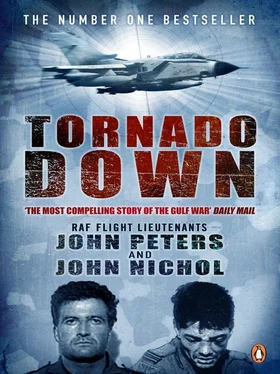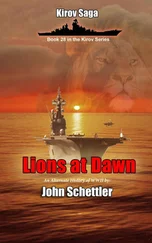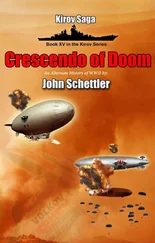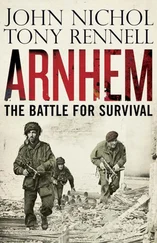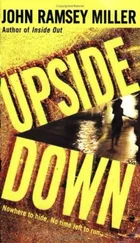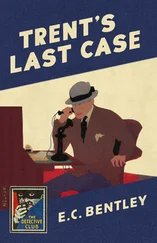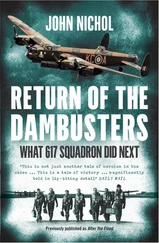It was then that our problems really started.
The deafening warble of the right engine fire warning blasted out, a Christmas-tree panel of red failure lights flashing on.
At that moment a quadruple-barrelled 23-millimetre gun opened up, from one of the dozens of Anti-Aircraft Artillery (Triple-A) sites surrounding the target airfield that had been tracking and firing at us. Four of its shells peppered the AIM-9L Sidewinder missile nestling on our right inboard wing pylon, igniting the Sidewinder’s rocket propellant. White hot, the fuel began burning up through the top of the slender white missile, the airflow fanning it back in a die-straight, incandescent line. The Sidewinder had become a giant oxy-acetylene torch, slowly but surely severing the Tornado’s wing.
During the few seconds since being hit, I had been utterly absorbed in the struggle to remain aloft. Now, as a crew, we had to get through the emergency action drills the pilot and navigator must carry out if they are to have any chance of survival.
‘We have a right-hand engine fire. Give me the bold face checks!’ I shouted.
John began reading off his check list. ‘Left throttle… HP [High Pressure fuel] shut!’ he commanded.
‘It’s the right engine!’ I screamed, closing the right throttle. This should starve the burning engine of fuel.
‘Left LP cock, shut!’ he persisted. Left LP cock? He was trying to get me to shut down the left engine, our only and dwindling chance of getting home in one piece.
‘It’s the fucking right engine!’ I screamed at him. I glanced at the warning panel. The fire had not only not gone out, it was worsening.
‘Sorry! Right LP cock, shut!’
‘Right Low Pressure fuel cock is shut!’
‘Right fire extinguisher, press!’
‘Right fire extinguisher pressed.’
Then I heard John shout, ‘We’re on fire! We’re on fire!’
‘I know we’re on fire,’ I said.
‘No! We’ve got to get out of here! Look out the side of the aircraft!’
I glanced up. A bright orange glow in the rearview mirrors made me twist backwards sharply in the narrow seat. It wasn’t just the wing: the back of the aircraft had disappeared. There was no sign of the Tornado’s massive tailplane. In its place a huge fireball was devouring the fuselage whole. Already it was halfway along the aircraft’s spine, just behind the UHF aerials – about three feet from where John sits. But it was the wing he was worried about. I could see him staring horrified at it. I, too, stared, transfixed for a second by the swiftness of the fire’s progress. Its back end ablaze, the aircraft was like some comet, trailing orange fire and long grey plumes of leaking jet fuel.
John called up the formation leader again. ‘Ejecting, ejecting,’ he transmitted.
No one ever received the message.
LAARBRUCH, GERMANY. John Peters: The first whispers of war fell on deaf ears. I was part of a four-aircraft formation operating out of RAF Laarbruch, hoovering around Germany on a low-level flying exercise. John Nichol was off posing at some airshow, which is what he’s good at. It was in early August, the eighth, a few days after the Iraqi invasion of Kuwait.
We landed at RAF Brüggen, to refuel. While the jets were being serviced, we breezed into 17 Fighter (F) Squadron, to say hello, grab a coffee, and brief for the next sortie. Some of the guys from 14 Squadron, which is based at Brüggen, were in there as well. Looking slightly flushed and excited, which should have been a clue that something was up, they said, ‘We’re going. We’re going out to the Gulf.’
It’s a favourite air force pastime to see how far you can get someone to believe a totally fictitious story: the bigger the spoof, the better. It’s called ‘rumour control’: start a rumour and see how far it goes before it comes winging back to your ears as ‘the truth’. What these guys were telling us looked like the biggest spoof of all time. Squadron Leader Gordon Buckley, our formation leader, turned to us and said quietly, ‘Look, guys, they’re just winding us up – they’ve obviously planned this.’
‘No,’ they said, ‘listen, we’re off to an air-to-air refuelling brief, we’re getting a quick intro and a couple of training missions to get us into it, then we’re going out – in a week’s time.’ This was a mite disconcerting; it did have a certain ring of truth about it. Tornado crews in Germany do not normally train for in-flight refuelling, there is no need: the aircraft has sufficient range for the job. In the Gulf it would be a different story, since the distances involved in reaching some of the targets and returning would be enormous. But we still refused to believe them. It seemed incredible. Next thing, the station Tannoy piped up: ‘Telephone call, Squadron Leader Buckley’.
Gordon came back. He cleared his throat. ‘We’ve got to get back to Laarbruch. Now.’
We stared at him in disbelief.
‘No,’ he said, ‘this is serious. This afternoon’s sortie has been cancelled. We’ve got to get back immediately. So it’s back to the jets, gentlemen. Now.’
We jumped back into the Tornados, by now fully fuelled up for that afternoon’s planned mission. The only instructions we got were: ‘Climb to height, dump your fuel, and land.’ This set the blood running. What were we returning to? If this was a spoof, they were certainly taking it a long way. Brüggen is only about fifty miles from Laarbruch by road – no time at all in a fast jet, especially if you are in a hurry. We were in a hurry. As we circled at 12,000 feet, dumping our excess fuel in the designated area, we had a god’s eye view of Laarbruch. I wanted to be down there, in amongst it, to find out what was happening. The fuel seemed to trickle out with agonising slowness. I got even more excited when we heard over our radio channel, ‘Guard’, which is the distress frequency, so everybody over northern Germany could hear it: ‘This is “Northern Fixer” on Guard: leader of “Kayak” formation return to base immediately.’ That was us. He went on: ‘Leaders of “Bobcat”, “Mallet”…’ Northern Fixer was trying to recall all RAF Germany formations that were airborne that afternoon!
To say this was unusual would be understating things just a little. The message was repeated continuously, until all the units flying that day had acknowledged it. Even over the radio, there was an edge to that voice. When we reached Laarbruch, we were out of those jets in record time. Everyone was rushing around the station, not quite like the proverbial headless chickens, but there was a huge amount of extra activity. We shot into the Pilots’ Briefing Facility, or PBF to the acronym addicts that inhabit the military. By now we were fairly keen to find out what was going on. Squadron Leader Gary Stapleton greeted us, his eyes button-bright. We followed him straight through into the briefing room.
‘Right,’ he said, ‘there is a good chance we’ll be going out tomorrow – to the Gulf. Make sure you pack an overnight bag, and make sure you’ve got all your bits together. We’re on standby.’ We stared at him in silence. Then everyone started talking at once.
All the ‘war cupboards’ that lined the briefing room were hanging open. These lockers, which contain special war equipment, were never opened under any circumstances – except the circumstance of war, or the very real threat of war. People were hauling kit-bags out and stuffing all sorts of operational gear into them.
We had had no inkling whatsoever that the Squadron was even being considered for deployment to the Gulf, but there we were, packing for it, at the double. Far from expecting we might go, the prevailing attitude was: ‘Tornados only go to war at Armageddon. Tornados only go to war on the Central European Front. They do not go to war over some poxy little square inch of desert somewhere.’ So much for the prevailing attitude.
Читать дальше
